April 27, 2024 | 17:21 GMT +7
April 27, 2024 | 17:21 GMT +7
Hotline: 0913.378.918
April 27, 2024 | 17:21 GMT +7
Hotline: 0913.378.918
There's a bounty of factual information about the differences between organic and non-organic produce, in addition to many common public perceptions — and misperceptions — about which fruits and vegetables are safe and healthy. It can be confusing.
Last week, the nonprofit Environmental Working Group released its annual "dirty dozen" list of the produce items containing the most pesticides, according to data from the Department of Agriculture and Food and Drug Administration. Strawberries and spinach topped the list.
But Marvin Pritts, a professor of horticulture at Cornell University, says the scientific consensus is that pesticide residue at government-regulated levels is safe for consumption, and eating conventional fruits and veggies is far healthier than skipping produce at your next meal.
"It can deter you from eating things that are good for you," Pritts said. "Most scientists and people who study this don't think [pesticide residue] levels come anywhere close to causing harmful toxicological effects on people."
The EWG highlighted the presence of pesticides, including fungicides, in 75% of the conventional produce that was tested.
The group encourages shoppers concerned about pesticides to buy organic, even as it suggests that people should try to get more produce on their plate regardless of how it was grown.
"Everyone — adults and kids — should eat more fruits and vegetables, whether organic or not," said EWG senior scientist Alexa Friedman.
Still, Pritts suggests the focus on pesticides is misguided.
The Environmental Protection Agency sets "tolerances" for the amount of pesticides that can remain on produce sold in the U.S.
The "dirty dozen" list only accounts for the presence of a given pesticide but not the amount that was detected, Pritts said, and experts actually recommend that growers cycle through various pesticides to prevent insects or diseases from developing a resistance to a single one.
Buying organic also doesn't necessarily mean avoiding pesticides, since organic growers can use pesticides derived from natural substances.
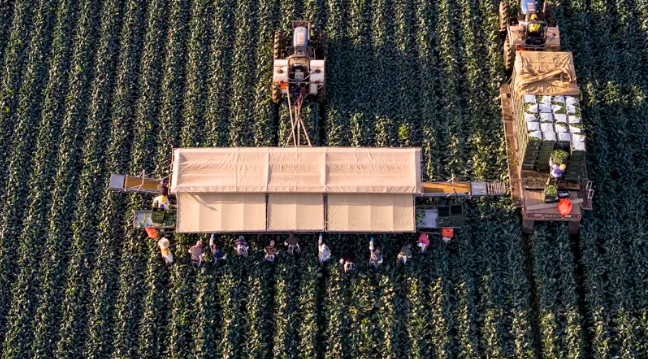
In an aerial view, farmworkers harvest broccoli near the U.S.-Mexico border on March 9 in Yuma, Ariz.
Consumers may also bear some of the blame for the use of pesticides. One example, Pritts said, is that growers have had to use pesticides on their apples to keep them free of spots and blemishes, because otherwise shoppers wouldn't buy them.
Pritts said none of that is meant to dissuade people from buying organic produce, as long as they can afford it and recognize that scientists haven't found any major nutritional benefits.
If you buy conventionally grown fruits and vegetables, washing them can help remove dirt and bugs, but it won't remove pesticide residue. "The residues are inside the cells and they're there to stay," he said.
Pritts noted that people who get ill from food are often sickened by bacteria — not pesticides. He recommends washing your produce before you eat it rather than when you put it in the fridge, since moisture on fruit and vegetables can help bacteria and fungus grow.
In his own life, Pritts is part of an organic CSA (community-supported agriculture) program where he lives. He likes that the farmer uses natural harvesting methods, but says that's not why he signed up.
"I belong to that not because he's organic, but because he's local," he said. "I think that the best thing you can do for the environment is to grow your food close to where you live."
(npr)
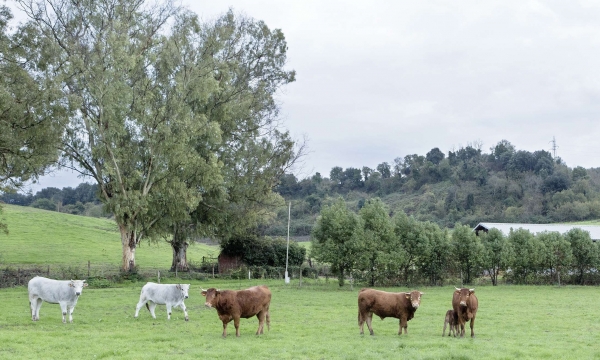
(VAN) RENOFARM, or Reduce the Need for Antimicrobials on Farms for Sustainable Agrifood Systems Transformation already piloted in Indonesia, Uganda and Nigeria

(VAN) Since 2022, a highly contagious strain of bird flu has spread across the U.S. at an unprecedented rate, resulting in the deaths of more than 90 million birds, plus thousands more in the wild.
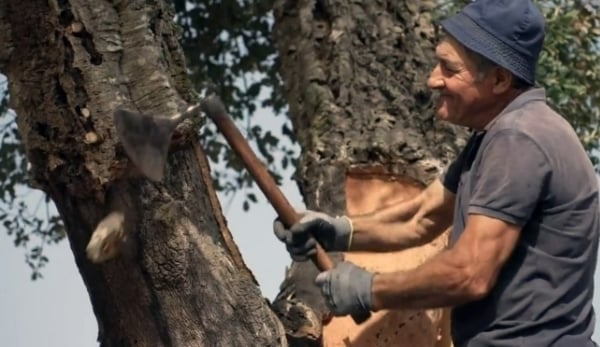
(VAN) 'It’s a product that answers all the challenges we have as a society.'
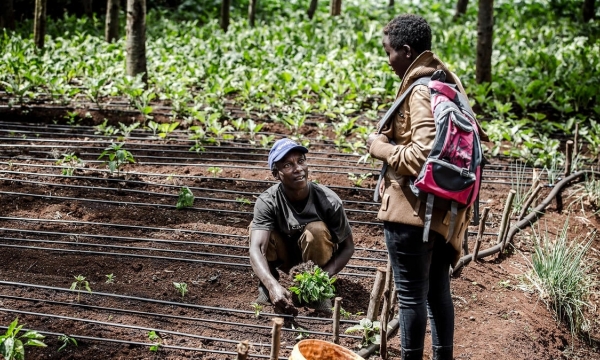
(VAN) FAO workshop highlights success stories, including from Benin, that provide models for replication.
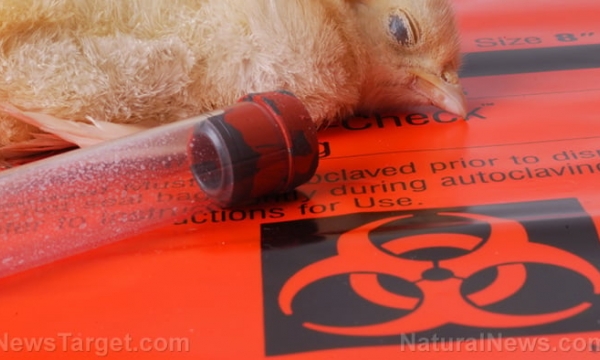
(VAN) The World Health Organization (WHO) said the rising number of bird flu cases has raised 'great concern' because it had an 'extremely high' mortality rate among those who had been infected around the world.
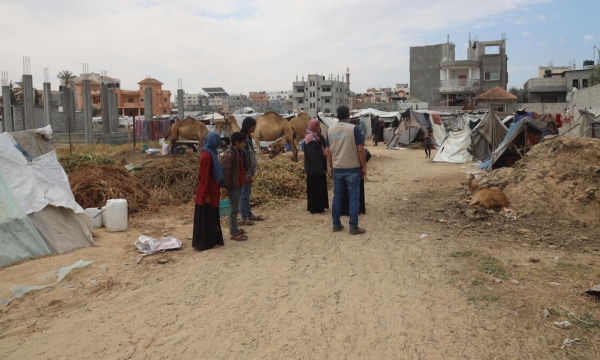
(VAN) Global Network Against Food Crises’ partners call for a transformative approach to break the cycle of acute hunger
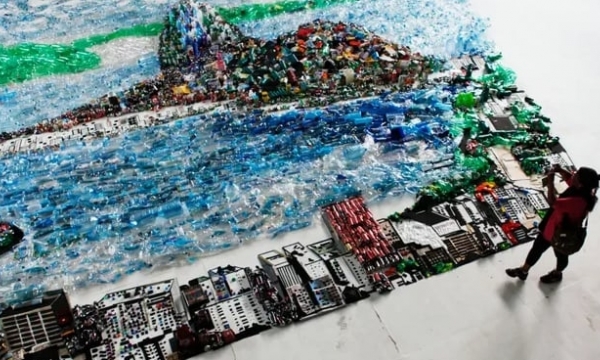
(VAN) Climate change may still be an existential threat to humanity, but as Earth Day 2024 rolls around on Monday, some of the people most concerned about the planet aren't peddling doom– they're spreading optimism.